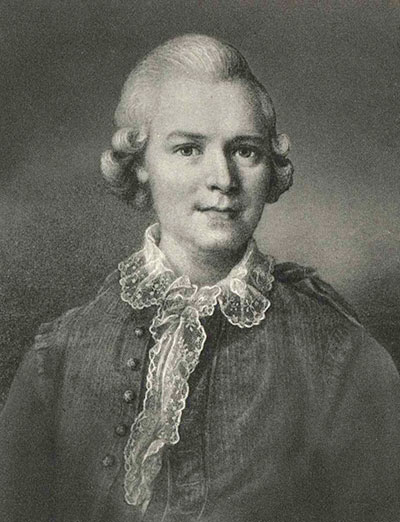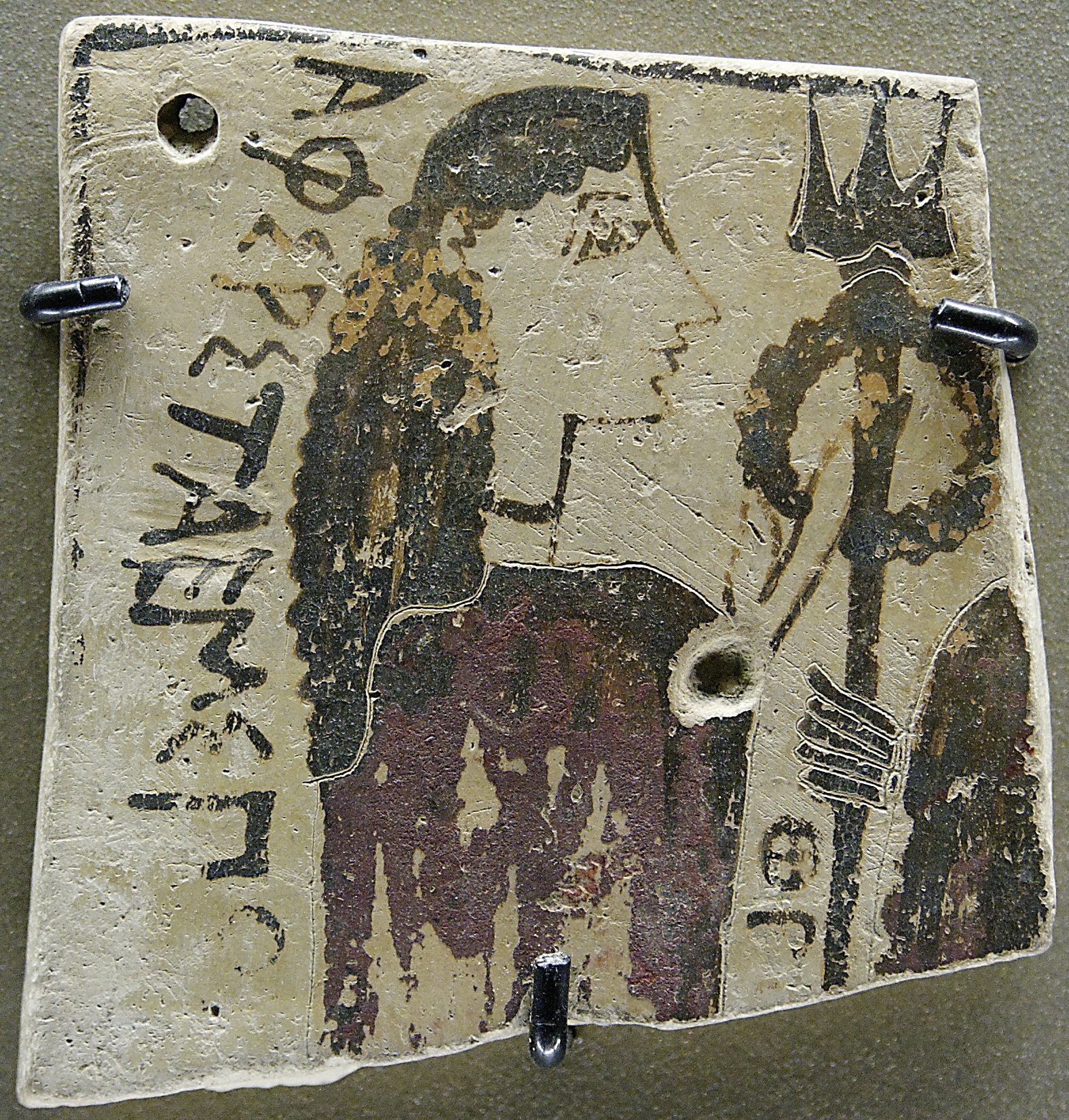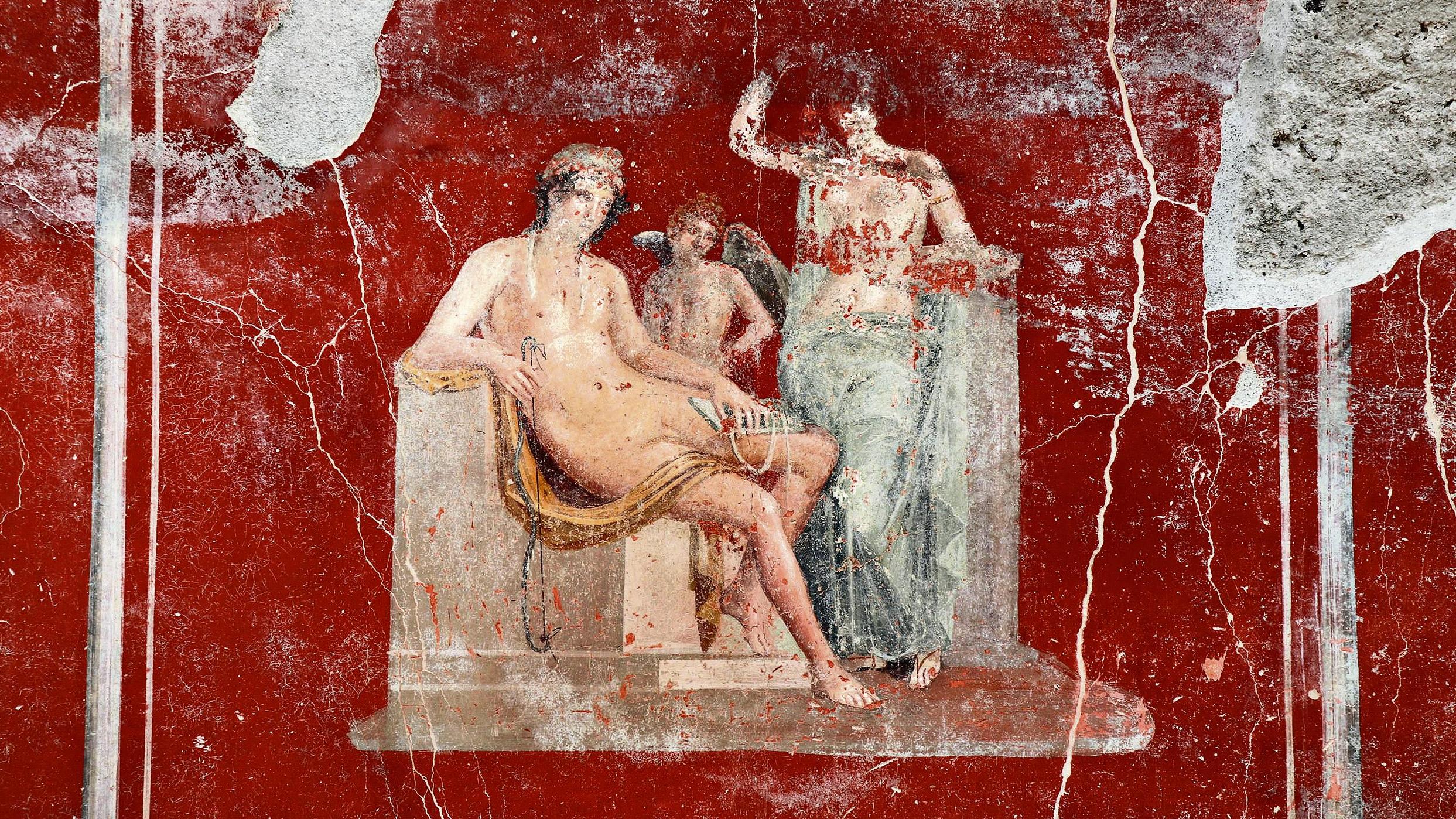|
Lovisa Augusti
Lovisa Sofia Augusti (born Ester Salomon; 1751 or 1756 – 25 June 1790) was a Swedish opera singer (soprano). She was regarded as one of the most noted opera singers of the Royal Swedish Opera during the Gustavian era. She was appointed ''Hovsångare'' in 1773 and inducted to the Royal Swedish Academy of Music in 1788. Life Early life Lovisa Augusti was born in Germany under the name ''Ester Salomon'' as the daughter of the travelling Jewish-German musician Israel Salomon. She was trained as a singer, while her brother Carl Friedrich Wilhelm Salomoni was trained as a violinist. In 1766, she arrived in Sweden with her brother and father. They hare noted to have performed in Varberg in that year, when her brother played the violin while she sang Italian arias. She performed in a concert with a musician of the royal '' Hovkapellet'' , Francesco Antonio Uttini on 22 February 1767 in Gothenburg, where she made a success. On 25 March 1767, she converted to Lutheranism ... [...More Info...] [...Related Items...] OR: [Wikipedia] [Google] [Baidu] |
Germany
Germany,, officially the Federal Republic of Germany, is a country in Central Europe. It is the second most populous country in Europe after Russia, and the most populous member state of the European Union. Germany is situated between the Baltic and North seas to the north, and the Alps to the south; it covers an area of , with a population of almost 84 million within its 16 constituent states. Germany borders Denmark to the north, Poland and the Czech Republic to the east, Austria and Switzerland to the south, and France, Luxembourg, Belgium, and the Netherlands to the west. The nation's capital and most populous city is Berlin and its financial centre is Frankfurt; the largest urban area is the Ruhr. Various Germanic tribes have inhabited the northern parts of modern Germany since classical antiquity. A region named Germania was documented before AD 100. In 962, the Kingdom of Germany formed the bulk of the Holy Roman Empire. During the 16th ce ... [...More Info...] [...Related Items...] OR: [Wikipedia] [Google] [Baidu] |
Understudy
In theater, an understudy, referred to in opera as cover or covering, is a performer who learns the lines and blocking or choreography of a regular actor, actress, or other performer in a play. Should the regular actor or actress be unable to appear on stage because of illness, injury, emergencies or death, the understudy takes over the part. Usually when the understudy takes over, the theater manager announces the cast change prior to the start of the performance. Coined in 1874, the term ''understudy'' has more recently generally been applied only to performers who can back up a role, but still regularly perform in another role. Similar tasks Performers who are only committed to covering a part and do not regularly appear in the show are often referred to as standbys and alternates. Standbys are normally required to sign in and remain at the theater the same as other cast members, although sometimes they may call in, until they are released by the production stage manager. If ... [...More Info...] [...Related Items...] OR: [Wikipedia] [Google] [Baidu] |
Gustav Löwenhielm
Gustav, Gustaf or Gustave may refer to: * Gustav (name), a male given name of Old Swedish origin Art, entertainment, and media * ''Primeval'' (film), a 2007 American horror film * ''Gustav'' (film series), a Hungarian series of animated short cartoons * Gustav (''Zoids''), a transportation mecha in the ''Zoids'' fictional universe *Gustav, a character in ''Sesamstraße'' *Monsieur Gustav H., a leading character in ''The Grand Budapest Hotel'' Weapons *Carl Gustav recoilless rifle, dubbed "the Gustav" by US soldiers *Schwerer Gustav, 800-mm German siege cannon used during World War II Other uses *Gustav (pigeon), a pigeon of the RAF pigeon service in WWII *Gustave (crocodile), a large male Nile crocodile in Burundi * Gustave, South Dakota * Hurricane Gustav (other), a name used for several tropical cyclones and storms *Gustav, a streetwear clothing brand See also * Gustav of Sweden (other) * Gustav Adolf (other) * Gustave Eiffel (other) * * * ... [...More Info...] [...Related Items...] OR: [Wikipedia] [Google] [Baidu] |
Carl Stenborg
Carl Stenborg (8 September 1752 – 1 August 1813) was a Swedish opera singer, composer and theatre director. He belonged to the pioneer generation of the Royal Swedish Opera and was regarded as one of the leading opera singers of the Gustavian era. He was a ''hovsångare'' and a member of the Royal Swedish Academy of Music. Life Carl Stenborg was born in Stockholm to actor Petter Stenborg (1719–1781), director of the Stenborg Troupe, and Anna Krüger (1710–1803). Of his brothers, Johan Fredrik Stenborg (1743–1813) studied at Uppsala University and became an official, and Nils Stenborg (d. 1780) became an opera singer. He received a good education, debuted as a concert singer in Riddarhuset in 1766 and was appointed councillor at the Royal Court of Sweden in 1767. This was considered unusual, since his father was not of wealthy means. Carl's mother had been the housekeeper of the nobleman and statesman Adam Horn (1717-1778). Carl or one of his brothers may have bee ... [...More Info...] [...Related Items...] OR: [Wikipedia] [Google] [Baidu] |
Amphitrite
In ancient Greek mythology, Amphitrite (; grc-gre, Ἀμφιτρίτη, Amphitrítē) was the goddess of the sea, the queen of the sea, and the wife of Poseidon. She was a daughter of Nereus and Doris (or Oceanus and Tethys).Roman, L., & Roman, M. (2010). Under the influence of the Olympian pantheon, she became the consort of Poseidon and was later used as a symbolic representation of the sea. Her Roman counterpart is Salacia, a comparatively minor figure, and the goddess of saltwater. Mythology Amphitrite was a daughter of Nereus and Doris (and thus a Nereid), according to Hesiod's ''Theogony'', but of Oceanus and Tethys (and thus an Oceanid), according to the '' Bibliotheca'', which actually lists her among both the Nereids and the Oceanids. Others called her the personification of the sea itself (saltwater). Marriage to Poseidon When Poseidon desired to marry her, Amphitrite, wanting to protect "her virginity", fled to the Atlas mountains. Poseidon sent many crea ... [...More Info...] [...Related Items...] OR: [Wikipedia] [Google] [Baidu] |
Anna Eriksdotter (Bielke)
Anna Eriksdotter Bielke (1490 – 1525) was a Swedish noble, commander of the city and castle of Kalmar during the Swedish rebellion against Denmark. Biography Anna was born to the noble councillor of state Erik Turesson (Bielke) and Gunilla Johansdotter Bese; among her siblings were riksråd and governor Axel Eriksson (Bielke), riksråd Ture Eriksson (Bielke) and the infamous Barbro Eriksdotter (Bielke). In 1514 she married the noble and riksråd Johan Månsson (Natt och Dag) (1470–1520), commander and governor of Kalmar 1510–1520. At the death of her spouse in the middle of the rebellion against Denmark in 1520, she took control of his fiefs and defended Kalmar against Denmark.Erik Turesson (Bielke), urn:sbl:18162, Svenskt biografiskt lexikon (art av G. Carlsson.), hämtad 2014-07-14 This was a similar experience as that of her mother, who as a widow defended Vyborg Castle against the Russians. When her relative Gustav Vasa was released from Danish captivity and returne ... [...More Info...] [...Related Items...] OR: [Wikipedia] [Google] [Baidu] |
Amphion
There are several characters named Amphion in Greek mythology: * Amphion, son of Zeus and Antiope, and twin brother of Zethus (see Amphion and Zethus). Together, they are famous for building Thebes. Pausanias recounts an Egyptian legend according to which Amphion employed magic to build the walls of the city. Amphion married Niobe, and killed himself after the loss of his wife and children (the Niobids) at the hands of Apollo and Artemis. Diodorus Siculus calls Chloris his daughter, but the other accounts of her parentage identify her father as another Amphion, the ruler of Minyan Orchomenus (see below). * Amphion, son of King Iasus of Orchomenus, son of Persephone, daughter of Minyas. He became the father of Chloris, wife of NeleusApollodorus, 1.9.9; Scholia on Homer, ''Odyssey'' 11.281 citing Pherecydes and Phylomache, wife of Pelias; these husbands are sons of Tyro and Poseidon. This Amphion is an obscure character, said to be a king of the Minyans of Orchomenus, in Boeo ... [...More Info...] [...Related Items...] OR: [Wikipedia] [Google] [Baidu] |
Adonis
In Greek mythology, Adonis, ; derived from the Canaanite word ''ʼadōn'', meaning "lord". R. S. P. Beekes, ''Etymological Dictionary of Greek'', Brill, 2009, p. 23. was the mortal lover of the goddess Aphrodite. One day, Adonis was gored by a wild boar during a hunting trip and died in Aphrodite's arms as she wept. His blood mingled with her tears and became the anemone flower. Aphrodite declared the Adonia festival commemorating his tragic death, which was celebrated by women every year in midsummer. During this festival, Greek women would plant "gardens of Adonis", small pots containing fast-growing plants, which they would set on top of their houses in the hot sun. The plants would sprout, but soon wither and die. Then the women would mourn the death of Adonis, tearing their clothes and beating their breasts in a public display of grief. The Greeks considered Adonis's cult to be of Near Eastern origin. Adonis's name comes from a Canaanite word meaning "lord" and most mod ... [...More Info...] [...Related Items...] OR: [Wikipedia] [Google] [Baidu] |
Orpheus Und Eurydike
''Orpheus und Eurydike'' (''Orpheus and Eurydice'') is an opera by Ernst Krenek. The German text is based on a play by Oskar Kokoschka. Kokoschka began writing his play during his convalescence (from wounds received on the Ukrainian front in 1915) and it premiered in 1921, one year before Rilke's ''Sonnets to Orpheus'' appeared. In 1923 he let it be known that he was looking for a composer to write incidental music. Kokoschka's expressionist, psychological treatment of the Orpheus myth, marked by his passion for Alma Mahler, appealed to Krenek so he approached Kokoschka. They quickly decided that the work should become an opera and Krenek received carte blanche to adapt the German play, condensing it by a third in the process, and setting it to an atonal score. At one point Krenek sought help from Eduard Erdmann, who gave up. In this new form it premiered as Krenek's Op. 21 in Kassel at the Staatstheater on 27 November 1926 with Ernzt Zulauf conducting. Roles References ... [...More Info...] [...Related Items...] OR: [Wikipedia] [Google] [Baidu] |
Apollo
Apollo, grc, Ἀπόλλωνος, Apóllōnos, label=genitive , ; , grc-dor, Ἀπέλλων, Apéllōn, ; grc, Ἀπείλων, Apeílōn, label=Arcadocypriot Greek, ; grc-aeo, Ἄπλουν, Áploun, la, Apollō, la, Apollinis, label=genitive, , ; , is one of the Olympian deities in classical Greek and Roman religion and Greek and Roman mythology. The national divinity of the Greeks, Apollo has been recognized as a god of archery, music and dance, truth and prophecy, healing and diseases, the Sun and light, poetry, and more. One of the most important and complex of the Greek gods, he is the son of Zeus and Leto, and the twin brother of Artemis, goddess of the hunt. Seen as the most beautiful god and the ideal of the ''kouros'' (ephebe, or a beardless, athletic youth), Apollo is considered to be the most Greek of all the gods. Apollo is known in Greek-influenced Etruscan mythology as ''Apulu''. As the patron deity of Delphi (''Apollo Pythios''), Apollo is an oracul ... [...More Info...] [...Related Items...] OR: [Wikipedia] [Google] [Baidu] |
Franziska Stading
Sofia ''Franziska'' Stading (1763 – 8 February 1836) was a Swedish opera singer of German origin. She is referred to as one of the more notable opera singers in Sweden during the Gustavian era. She was a ''Hovsångare'' and member of the Royal Swedish Academy of Music from 1788. Life Franziska Stading was born in Berlin in Prussia in Germany as the stepchild of the musician Josef Hummel, father of Johann Nepomuk Hummel. She appears to have been raised in The Hague in the Netherlands, and was reportedly at some point a student of Gertrud Elisabeth Mara in singing, and the pedagogue Graaf in music. She reportedly arrived in Stockholm in Sweden as the relative of the German violinist Friedrich Benedict Augusti, the spouse of the opera singer Lovisa Augusti of the Royal Swedish Opera, where she was accepted as a student in 1773. Franziska Stading was unmarried but may have had a daughter, as Evelina Stading is referred to both as her daughter or her niece in various sou ... [...More Info...] [...Related Items...] OR: [Wikipedia] [Google] [Baidu] |





